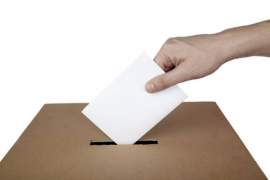
Veto Defined

Popular In Constitution
Purpose Of Lifetime Appointment And Pros And Cons Enumerated Powers Bicameral Legislature Background Article 3 Of The Constitution We The People 1st Amendment Who Wrote The Constitution Judicial Review Equal Protection Clause 5th Amendment 10th Amendment Three Fifths Compromise
Veto, defined as deciding against something or refusal to support, is that which is under the authority of the President. In general, veto power emits authority to halt something from occurring, but does not institute any changes itself. Despite its lack of actual statement within the Constitution, veto is inferred within Article I, Section 7 of the United States Constitution.
That which is specified within the Constitution is composed of the requirement of all legislation stemming from Congress to have been conveyed to the President prior to its passing. In such a way, the President may either sign legislation for approval into law or return the bill unsigned to Congress, thus, vetoing it.
There are various consequences that accompany such
an authority as veto power, which may be summed up by two contrasting outcomes.
On one side, if the President does threaten or hint at a possible vetoing of
legislation, they may adequately influence the legislature toward some
modification that would better suit their desired direction. Amendments may be
passed, which may work to this end. However, the use of veto power must also
not be used at the President's leisure, as such an abuse of authority may lead
to conflict arising in terms of the relationship between that of the Commander
in Chief and Congress. This may only lead to distrust as well indignation
within the political sphere, which may then make the President's job that much
more difficult. They may also be seen with increased scrutiny that would
possibly hurt their chances of sustaining office in the future.
The procedure that occurs when legislation is
presented to the President for authorization also resides within the United
States Constitution. It sets forth that the Commander in Chief has a time
period consisting of 10 days to mull over particular legislation. During this
time, they may either place their signature on the Bill, thus making it law, or
veto it by doing nothing at all and sending it back. Such a veto is not set in
stone, however, as Congress may override the President's decision by a
two-thirds vote. This counteraction may be prevented by what is known as a
"pocket veto."
In accordance with such a term, the President may do away with any potential for Congress to supersede it. If the president holds onto the Bill with no other action employed while Congress has already adjourned, there can be no possibility of "Congressional override." In the event of such a circumstance, a new Bill must be created, introduced, and conveyed through the whole process of legislation once more.
In the Supreme Court case of Immigration and Naturalization Service v. Chadha, it was ruled that legislative vetoes not be permitted concerning issues of immigration as well as naturalization. These were due to the Court's belief that such provisions were in direct violation with the Constitutional "separation of powers" that must exist and be maintained between that of the executive and legislative areas.
NEXT: What Are Monopolies





















